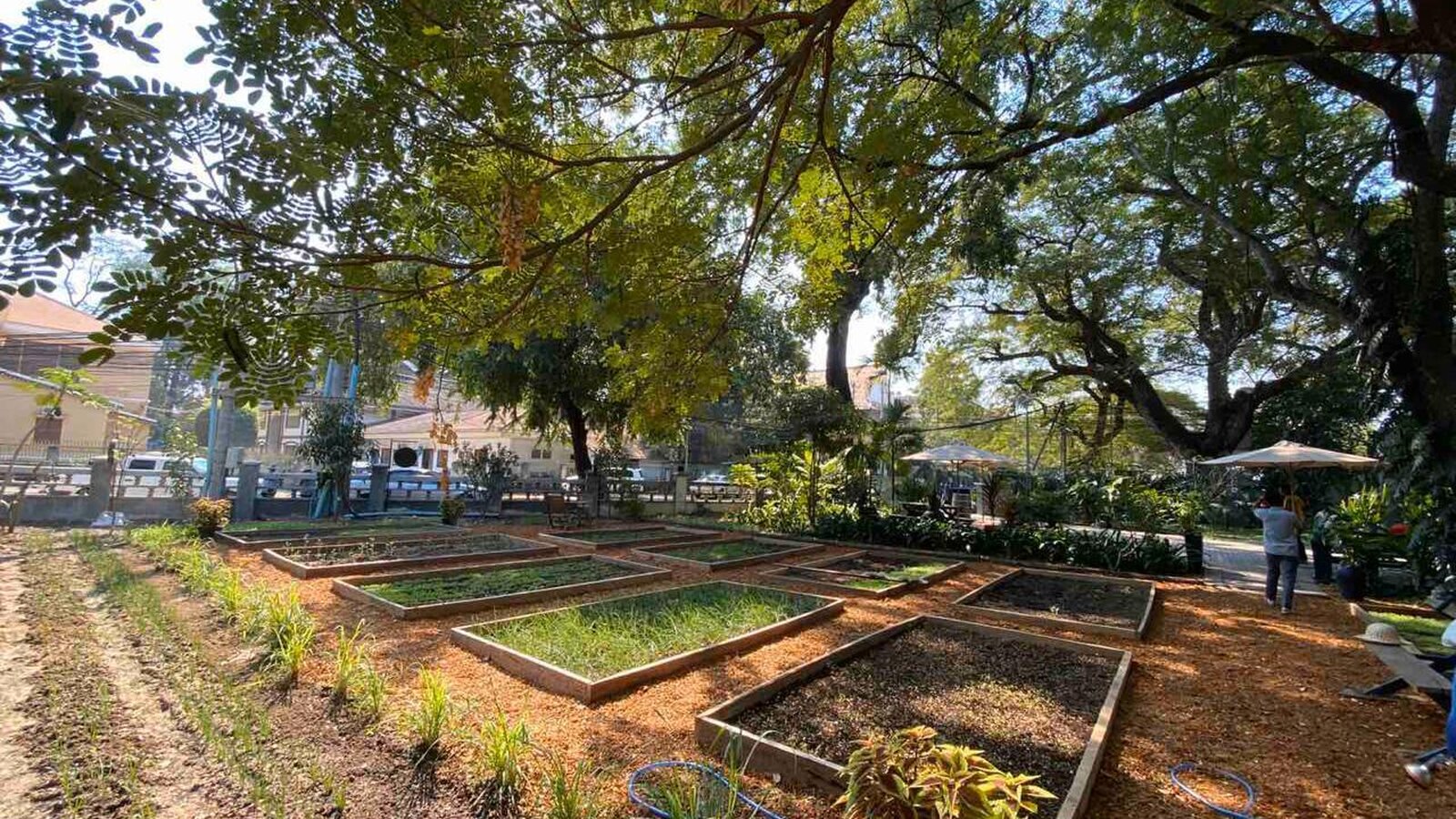
Winter baby garlic (aillet in French), Thai chives (Allium tuberosum), beetroot sprouts, radishes, morning glories, "Jaune Paille des Vertus" onions, Asian coriander, various greens, strawberries, "Cherie" and "Linzer Delikatess" potatoes...Naturally shaded by native trees, a whole cornocupia of gourmet delights is gently sprouting off the soil.
Initiated only two months ago, the experimental stage of Templation Organic Farm is already bearing fruit...or vegetable. The project, set to soon expand to a vast plot of land east of Siem Reap City, is "simply aimed at growing produce that retain all their natural flavors by using naturally-enriched soil and genuine, not genetically-modified seeds," summarize Audrey and Benoit Deloffre, consultants on this farming initiative in Cambodia.



In Europe, the young couple has been dubbed "the market-gardeners for 3-starred Chefs" since their 400 vegetable species -- including no less than 17 varieties of carrots -- are sought after by the most celebrated kitchens in the haute gastronomie world. Son and grandson of independent farmers in the French Champagne region, Benoit Deloffre sees himself more as a "farming artisan"...or artist, one can say when marveling at the delicate hues, natural shapes and authentic taste of what ends up in your plate.
"The cultivation techniques are simple, to be easily shared with the local growers we're goint to train at our organic farm in the next future", adds Benoit Le Rioux, the Templation Corporate Executive Chef who is supervising the project; "and while this kind of production is essentially aimed at high-end restaurants in the Siem Reap area, including Templation kitchen, there is no reason why any discerning consumer could not afford healthy and tasty vegetables or fruit. In Western countries, the "organic" label has often led to exorbitant, abusive pricing. This should not be the case here in Cambodia".

Audrey and Benoit Deloffre

Benoit Le Rioux with farming trainees
How these species will adapt to the Southeast Asian climate? "Our ongoing experience in Thailand shows that when you match rightly sourced seeds to any given soil, find the adequate amount of watering, enhance natural shading by planting fruit trees around the cultivated areas, drain them properly in case of heavy rains, weather is not really an issue", remarks Audrey Deloffre.
Fact is, back in 1934 and while giving a thoroughly documented account of archeological research in Angkor, travel writer Harriett W. Ponder noted that "all sorts of crops are grown here, and the place is justly famed for its vegetables."
A few dietary talking points...
- The results of most studies with GM (genetically modified) foods indicate that they may cause common toxic consequencessuch as hepatic, pancreatic, renal, or reproductiveeffects. They also alter the hematological, biochemical, and immunologic parameters.
- While Cambodian authorities have formerly condemned the use of GMOs within the country, a growing number of citizens worry about the increase of imported and unchecked produce sold on Cambodian markets.
- According to Washington D.C. based EthnoMED platform, "the Cambodian diet is naturally nutritious, full of fish and other seafood, vegetables and fruit. Unlike the average American diet, Cambodian meals are generally low-fat and low-calorie."
- Highly processed food has been proven prejudicial to human metabolism. Fresh vegetables and fruit free of chemical preservatives are an essential part of a healthy diet.



